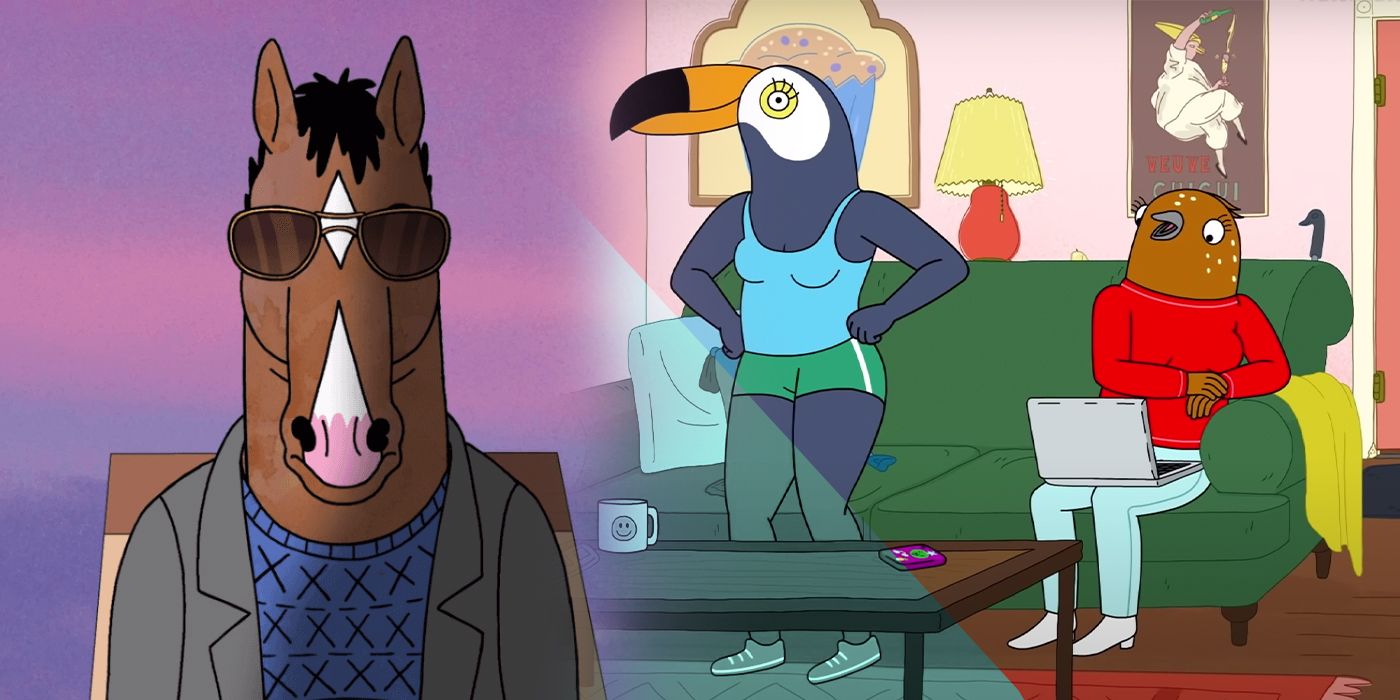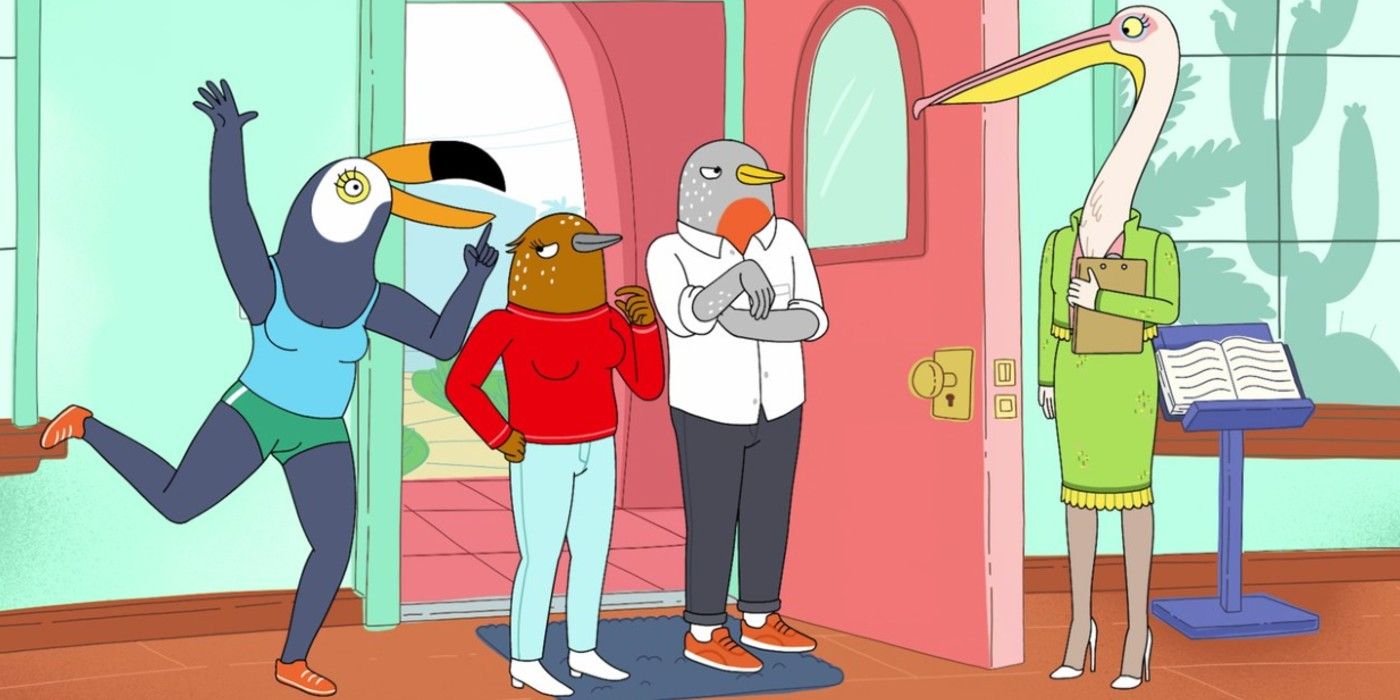
Now on Adult Swim, Tuca & Bertie season 2 continues to offer the same exhilarating energy, narrative depth, and experimental art of season 1 — and also repeats a familiar story from BoJack Horseman. Tuca & Bertie was created by cartoonist Lisa Hanawalt, who also designed Netflix's hit series BoJack Horseman. Given that Hanawalt's been heavily involved in both series, it's not surprising that they would share similar aesthetics and core themes; however, one story, in particular, is getting an interesting new spin now that it's from the perspective of two female characters.
Tuca & Bertie is the story of two friends — and birds — adjusting to change. Season 1 began with Tuca moving out from Bertie's apartment so that Speckle, Bertie's boyfriend, could move in. Tuca & Bertie season 1 explored how these characters struggled to adjust to a new normal, with each having different challenges to overcome. Tuca and Bertie are forced to face the codependency of their relationship, while Speckle is put in a position of having to prioritize his own needs and implement healthy boundaries.
Although BoJack Horseman had a totally different premise, it uses similar themes as Tuca & Bertie. BoJack is a deeply lonely and dissatisfied man, who fosters unhealthy attachments with those around him, largely because of his own self-destructive tendencies. A major story in BoJack Horseman was his relationship with women like Diane and Princess Caroline, who he both had sexual interest in and an unhealthy attachment to — and for both cases, the codependency of the relationship was harmful to all involved. Similarly, Tuca & Bertie season 2 continues the main characters' personal journeys, with the first episode focusing on the dynamic between the two best friends — and how harmful it can be for their long-term happiness.

Tuca & Bertie season 2, episode 1, "Bird Mechanics" mainly deals with Bertie's anxiety, but it also examines Tuca's struggles to form personal relationships. At the episode's end, Tuca abandons her new female love interest (the titular "bird mechanic") to "help" Bertie — sabotaging her own happiness in the process. In a moment of self-awareness, Tuca screams all of her frustrations into a cup, and labels it "Bertie is keeping me alone." Earlier in the episode, bird mechanic asks if Tuca is in love with Bertie, then later (astutely) points out that Tuca is using Bertie as an excuse to stay alone. This sets up the next stage in Tuca's character journey: accepting that Bertie has a partner, Speckle, and that she too needs to pursue happiness via a romantic relationship — which, of course, is easier said than done, as Tuca is resistant to being vulnerable and opening herself up to others.
BoJack had a similar – although much more problematic (given his gender and the inherent power dynamic) — character arc as the one Tuca & Bertie sets up for Tuca. BoJack didn't romantically love Diane, Princess Caroline or even Sarah Lynn. He often pursued unhealthy, toxic patterns; rather than deal with his problems, face reality, and allow himself the luxury of a mature, satisfying romantic partnership, he would repeatedly fall back into old habits that reinforced his own self-deprecating, self-hating fears. In the process, he pulled the women down with him, encouraging their own worst, self-destructive tendencies — whether it be Sarah Lynn's substance abuse or Diane's crippling depression. At the same time, he sabotaged the few positive relationships with romantic partners, finding ways to undermine his own happiness.
By repeating a story in BoJack Horseman, Tuca & Bertie season 2 is continuing the previous show's exceptional storytelling, updating a core narrative element to be more nuanced and grounded. Tuca is not nearly as troubled as BoJack, and her experiences are much less dramatic; yet, the character is so well developed that despite having lower stakes, her story is just as gripping and interesting as the predecessor — and is much less steeped in problematic connotations.
from ScreenRant - Feed https://ift.tt/3zmRQaO

0 Comments